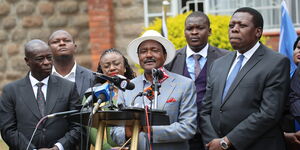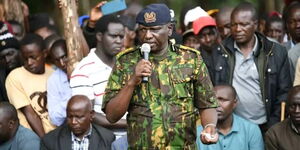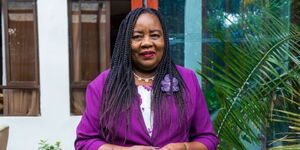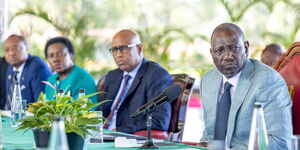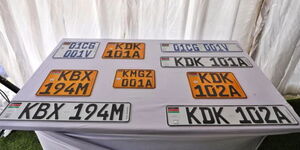Minority Whip Junet Mohamed and Leader of the majority, Kimani Ichung'wah clashed over the debate surrounding the government's announcement of importing 10 million bags of Genetically modified maize in a bid to fight hunger.
Speaking in Parliament on Tuesday, November 22, Ichung'wah defended the government's decision to import GMOs, pointing out the worrying state of food security across various counties.
He added that the production from local farmers could not sustain the entire country and needed to find supplementary means to acquire food.
"We project to harvest about 30 million bags this year and our normal consumption is about 40 million bags so definitely we are in a shortage of maize. That's the point at which Junet interrupted me because he is averse to the truth and facts. He thrives on propaganda."
Junet, however, raised a point of order, calling out Ichung'wah for allegedly overstepping his role as the leader of the Minority.
According to the Minority whip, Ichung'wah was mandated to derive the information from the Ministry of Agriculture.
Junet pressed on with the tirade and accused the leader of the majority of being consumed by power.
"When you say that I thrive on propaganda, Mr. Speaker, this man (Kimani Ichungwah) used to be a very good man before he became the Majority Leader, now power has gotten into his head. We need to take him to the rehabilitation centre during this long recess.
"These are small jobs we're given so there's no propaganda. I was telling you to go and get the answer from the Minister of Agriculture or Industry and ask him why we are importing 10 million of GMOs, and the ship has docked. Go and fetch the information, you're just a messenger," Junet lashed out.
Trade Cabinet Secretary Moses Kuria sparked a debate after he announced that the country would allow duty-free importation of 10 million bags of GMO maize.
He noted that the decision was agreed upon after a cabinet meeting chaired by President William Ruto which was viewed as a progressive step towards agriculture.
The decision however drew sharp criticism from Azimio la Umoja proponents who questioned the safety of the scientific products on Kenyans' lives.

